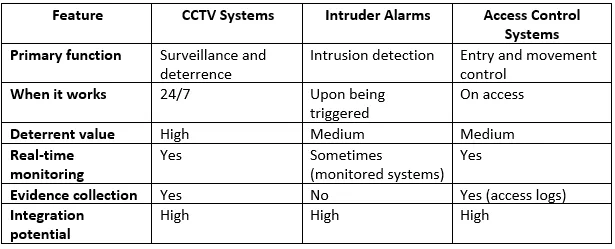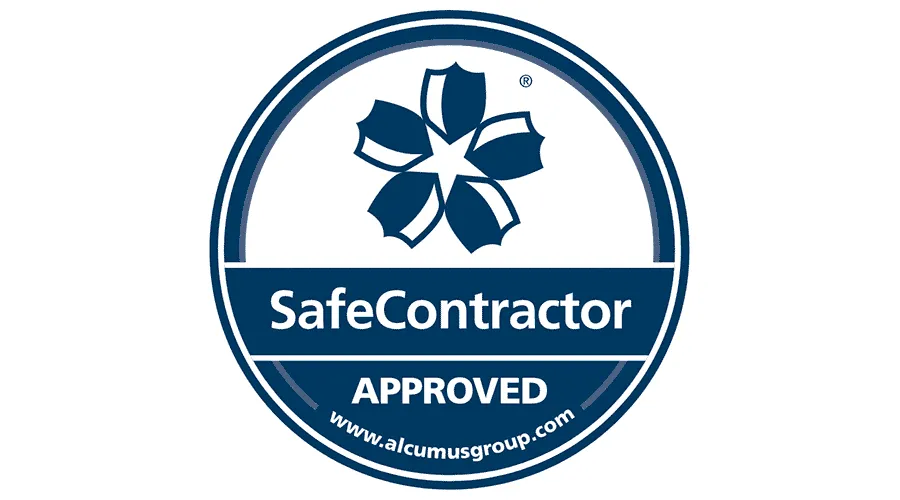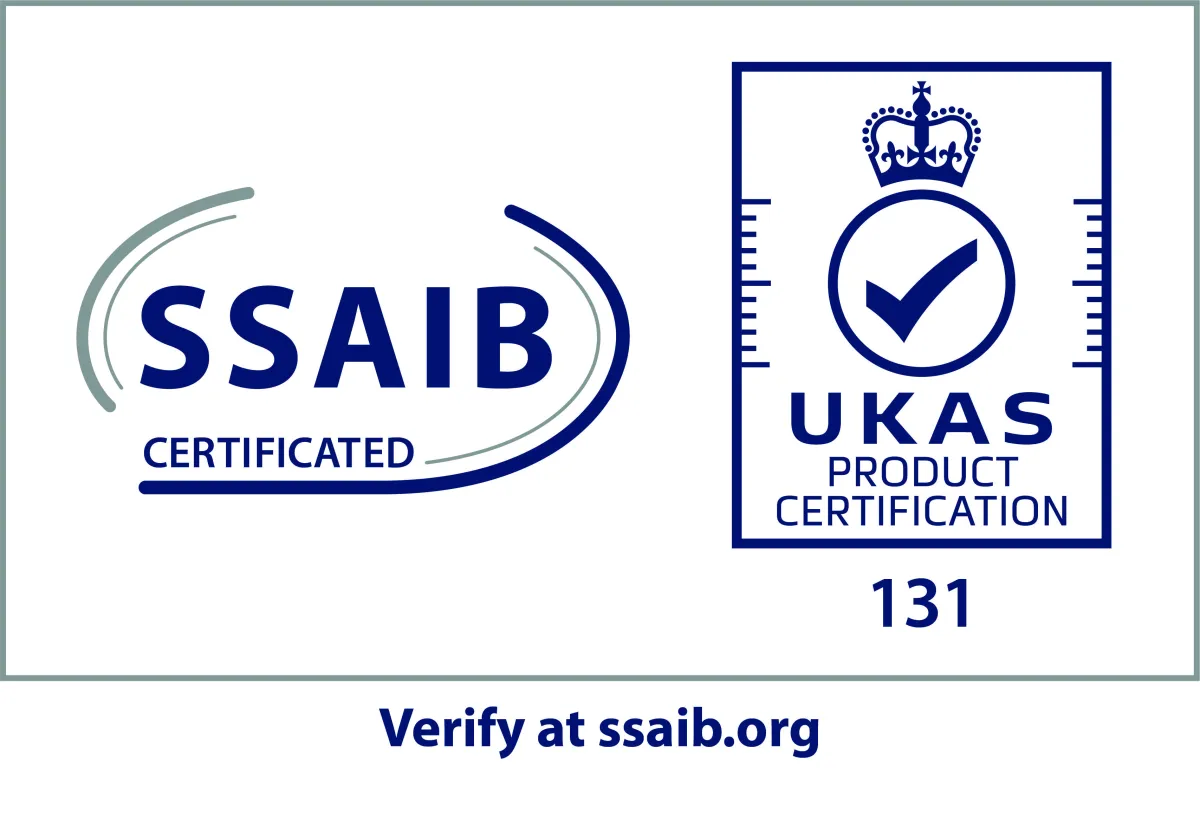Many UK businesses know it's important to protect their premises, but they struggle to determine which security system is best suited for them. Why? Because comparing security solutions is complex.
With so many security systems, including CCTV cameras, intruder alarms and access control, it can be tricky to know which one your business needs. This significant challenge may be why nearly half a million UK businesses experienced crime in 2023.
Each security solution serves a different purpose and often offers unique advantages. The best way to determine which security solution is right for you is to understand how each one works and how, when combined, they can create a complete security solution that safeguards your people, property and assets.
In this guide, we’ll explain the three pillars of modern business security, how each solution works, and the advantages, to help you compare security solutions and choose the right one for your business.
The 3 Pillars of Modern Business Security
A robust commercial security system is a must for all modern businesses and often includes one, a combination of, or all three of the main pillars: CCTV systems, intruder alarms, and access control. All of which serve a distinct role:
CCTV Systems: These security solutions are used for monitoring and can act as a deterrent. Additionally, CCTV systems can help gather evidence and support the prosecution process.
Intruder Alarms: Intruder alarms are ideal for detecting unauthorised personnel and, upon detection, can provide alerts to relevant stakeholders, ensuring a fast response and swift action against intruders.
Access Control Systems: With an access control system, you can prevent unauthorised personnel from entering your premises and manage who enters and exits your business. This type of security solution improves accountability and reduces the risk of security breaches, theft and unauthorised access to sensitive areas.
Depending on your business size, layout, and risk level, these can work as standalone systems, but when integrated, they form a powerful, layered defence that keeps your business secure around the clock.
Pillar One – CCTV Systems
CCTV systems are one of the most effective and widely used forms of commercial security. They use strategically positioned cameras to monitor activity both inside and outside your premises, recording footage that can be viewed in real time or stored for later review.
How CCTV Works
A CCTV system typically consists of cameras, a digital video recorder (DVR) or network video recorder (NVR) and a monitoring interface. The cameras capture footage, which is transmitted to the recorder, allowing users to view and store video from multiple locations across a site. Modern CCTV solutions can also send instant alerts when unusual motion or behaviour is detected.
Key Benefits
· Visibility and deterrence – Visible cameras are a strong deterrent against theft, vandalism and antisocial behaviour.
· Evidence and accountability – High-definition recordings provide valuable evidence for investigations or insurance claims.
· Peace of mind – With remote access and alerts, business owners can keep an eye on their premises anytime, from anywhere.
Best For
CCTV systems are ideal for retail stores, warehouses, offices, construction sites, car parks, and any environment where you need visibility, deterrence, and evidence collection.
Pillar Two – Intruder Alarm Systems
Intruder alarm systems detect unauthorised access to your premises and immediately alert you, triggering a response. They remain one of the most reliable ways to secure your business, particularly when paired with CCTV and monitoring services.
The three most common types of intruder alarms are wired, wireless, and monitored systems, each with slight differences and advantages.
How Intruder Alarms Work
An intruder alarm system uses a network of sensors, such as motion detectors, door contacts, or glass-break sensors, that communicate with a central control panel. When triggered, the system can sound a local siren, send an alert to your phone or notify a 24/7 monitoring centre, which can then quickly act.
Key Benefits
· Rapid response – Early detection allows for fast action to protect your property and staff.
· Insurance compliance – Many insurers require accredited alarm systems for commercial policies.
· Reduced losses – Alarms can minimise theft, vandalism and damage by deterring intruders early.
Best For
Intruder alarms are suitable for all business types, including warehouses, distribution centres, retail outlets and manufacturing facilities, where rapid detection and response are essential.
Pillar Three – Access Control Systems
Access control systems manage and monitor who can enter specific areas of your building, and when. They replace traditional keys with electronic credentials such as fobs, cards, PINs or biometrics, offering a much higher level of security and control.
How Access Control Works
Every user is assigned permissions through specialist software. When an authorised credential is presented at a reader, the system grants access; if unauthorised, access is denied and logged. Not only does this help protect your property, but it also provides full visibility into staff movements and can integrate with HR, time-management, and visitor systems.
Key Benefits
· Accountability and audit trails – Every entry and exit is recorded, providing traceability in case of incidents.
· Staff safety – Restrict access to sensitive or high-risk areas to protect employees and assets.
· Operational efficiency – Reduce reliance on keys and manage permissions remotely or across multiple sites.
Best For
Access control is ideal for offices, educational facilities, logistics hubs and multi-site organisations that require secure, managed access for staff, contractors and visitors.
A Quick Comparison: CCTV vs Alarms vs Access Control
We’ve created a quick overview to help you compare CCTV, intruder alarms, and access control systems.









